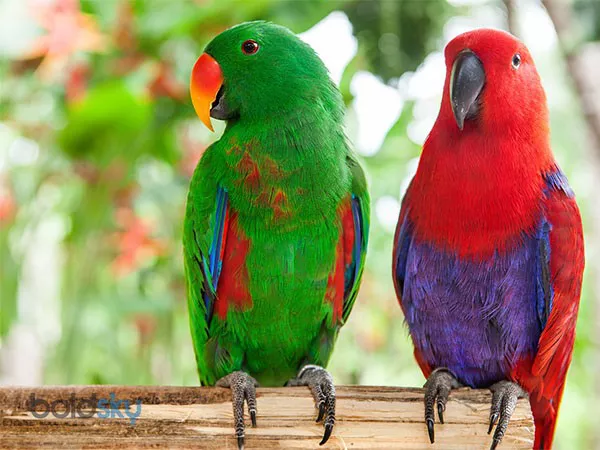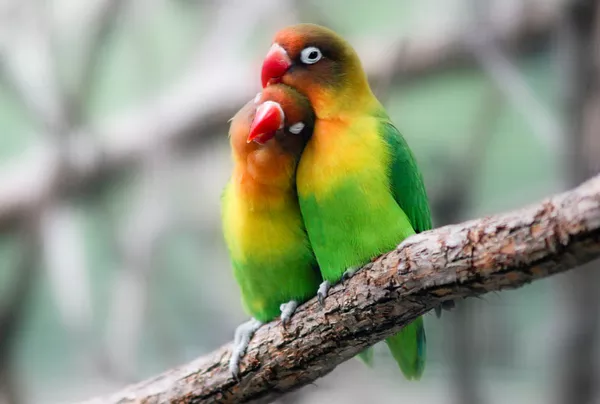Sun conures (Aratinga solstitialis) are one of the most colorful and entertaining species of parrots, known for their vibrant plumage and playful personalities. These birds are highly intelligent and social, which makes them ideal companions for pet owners who can provide them with ample interaction and stimulation. However, one of the most challenging behaviors that many sun conure owners face is excessive screaming.
While it’s perfectly natural for a sun conure to vocalize, their loud calls can sometimes be overwhelming, especially in a household with multiple pets or small children. If your sun conure’s screams have become a source of stress for you or your family, it’s essential to address this behavior in a way that benefits both you and your bird. In this article, we’ll explore why sun conures scream, how to understand their needs, and most importantly, how to reduce or stop their screaming.
Understanding Why Sun Conures Scream
Before we dive into the strategies for reducing screaming, it’s important to understand why sun conures vocalize so much. Screaming is a natural form of communication for parrots, and it serves several purposes in the wild. Understanding the reasons behind your sun conure’s vocalizations can help you respond to their needs appropriately.
1. Social Communication
In their natural habitat, sun conures live in flocks where they use loud calls to communicate with other members. Screaming can be an expression of excitement, a way to locate other flock members, or an alert to potential dangers. In a domestic setting, your sun conure may scream to communicate with you or simply because they feel isolated. Since sun conures are highly social birds, they may scream if they are not receiving enough attention from their human companions.
2. Seeking Attention
One of the most common reasons sun conures scream is to get attention from their owners. These birds thrive on social interaction, and when they feel neglected, they may resort to loud vocalizations to remind you they’re there. Attention-seeking behavior can escalate if the bird gets a reaction—whether positive or negative—from its owner.
3. Boredom or Lack of Stimulation
Sun conures are intelligent and energetic birds. If they are not mentally and physically stimulated, they may become frustrated and start screaming. Toys, puzzles, and interaction are essential to keep your conure’s mind active. Without these outlets, your bird may begin screaming as a way of releasing pent-up energy or frustration.
4. Stress or Anxiety
Birds are creatures of habit, and any changes in their environment can cause stress. Moving to a new home, new pets in the house, loud noises, or changes in their routine can all trigger anxious behavior, including screaming. If your bird’s screaming is a result of stress, it may also display other signs of discomfort, such as feather plucking or self-mutilation.
5. Health Issues
While less common, a sun conure may scream due to health problems such as illness or injury. If your bird’s screaming is sudden or accompanied by other signs of illness, such as lethargy, changes in appetite, or unusual behavior, it’s essential to consult an avian vet to rule out any medical concerns.
How to Reduce or Stop a Sun Conure from Screaming
Now that we’ve covered the reasons behind a sun conure’s screams, let’s explore some strategies to reduce or stop this behavior. With patience, consistency, and the right techniques, you can help your sun conure become quieter and more content.
1. Provide Consistent Attention
Since sun conures scream for attention, one of the most effective ways to reduce their vocalizations is by offering regular, quality attention. Spend time with your bird every day, and provide social interaction in the form of talking, playing, and training. Sun conures thrive when they feel they are part of the family, and regular attention will reduce their need to scream for attention.
It’s important to be consistent in how you interact with your bird. Set aside specific times each day to engage with your conure, and make sure these interactions are positive and rewarding for the bird. Over time, your conure will learn that it doesn’t need to scream to get your attention.
2. Create a Stimulating Environment
Boredom is another major cause of screaming in sun conures. These birds are intelligent and need mental stimulation to stay happy. If your bird is not receiving enough entertainment, it may turn to loud vocalizations to express its frustration.
Make sure your sun conure has a variety of toys to play with, such as puzzle toys, foraging toys, and chewable items. Change the toys regularly to keep things interesting and prevent your bird from getting bored. You can also introduce new activities, such as training sessions or learning new tricks, which will engage your bird’s mind.
Sun conures are also active and need physical exercise. Allow your bird to fly and explore in a safe, bird-proofed space. Providing an enriching environment with plenty of activities will help reduce boredom and, in turn, minimize screaming.
3. Reinforce Quiet Behavior
One of the most effective methods to stop a sun conure from screaming is through positive reinforcement. When your bird is quiet, reward it with praise, treats, or extra attention. This will help your sun conure understand that being quiet is the behavior that gets you to respond.
On the other hand, if your sun conure screams for attention, try to avoid giving in. If you react by talking to or holding the bird while it’s screaming, you might unintentionally reinforce the behavior. Instead, wait for your bird to calm down, and then reward it with attention. Over time, your bird will learn that it gets a better response when it is calm and quiet.
4. Address Anxiety or Stress
If your sun conure is screaming due to stress or anxiety, it’s important to identify the source of the issue and address it. Start by evaluating the environment for potential stressors, such as loud noises, a change in routine, or the presence of new pets or people. If you’ve recently moved or made changes to your home, it may take your bird some time to adjust.
To reduce stress, make sure your sun conure has a quiet, comfortable space where it can retreat when it feels overwhelmed. You can also provide a sense of security by maintaining a consistent routine. Birds thrive on predictability, so feeding, playtime, and bedtime should happen at roughly the same time each day.
If your bird’s anxiety persists, consider using calming techniques such as covering the cage at night or providing a “safe space” where the bird can feel secure. In some cases, pheromone sprays or calming supplements designed for birds may help reduce anxiety.
5. Encourage Self-Entertainment
Sometimes, your sun conure may scream because it simply doesn’t know how to entertain itself. Encouraging self-entertainment can help reduce the bird’s dependence on you for constant interaction. Place food items in foraging toys, which will give your bird something to focus on and keep it busy. You can also teach your bird simple tricks or provide puzzles that challenge its intelligence.
Providing a variety of toys that encourage natural behaviors like chewing, climbing, and playing will keep your sun conure engaged. Birds often scream out of frustration when they don’t have anything to do, so keeping them mentally and physically active can help prevent this.
6. Train Your Sun Conure
Training your sun conure is an excellent way to reduce unwanted behaviors, including screaming. Positive reinforcement training can teach your bird to be quieter when requested, and it provides an outlet for its intelligence and energy. Start with basic commands, such as “quiet,” using treats as a reward when your bird stops making noise.
Training should be done in short, positive sessions to avoid overwhelming your bird. Use rewards such as your bird’s favorite treat or a favorite activity to reinforce the desired behavior. Over time, your sun conure will learn that quiet behavior is more rewarding than screaming.
7. Consider Cage Placement
The location of your sun conure’s cage can also affect its tendency to scream. If your bird is isolated in a room away from the family, it may vocalize to try and reconnect with you. Place the cage in a central area where your sun conure can see and interact with family members but isn’t in a location that causes overstimulation.
If your bird is near windows where it can see outside, it might also scream at the sight of other birds, animals, or people. Experiment with the cage placement to see if moving it to a different area helps reduce your bird’s vocalizations.
8. Address Health Concerns
If your sun conure’s screaming is sudden or accompanied by other signs of illness, it’s crucial to visit an avian veterinarian. Health issues can manifest as behavior changes, including excessive vocalization. An avian vet will be able to examine your bird and provide treatment if necessary.
Conclusion
Screaming is a natural behavior for sun conures, but when it becomes excessive, it can lead to frustration and stress for both the bird and its owner. By understanding the root causes of screaming—whether it’s attention-seeking, boredom, anxiety, or health-related issues—you can develop strategies to address the behavior. Providing consistent attention, creating a stimulating environment, reinforcing quiet behavior, and offering training are all effective ways to reduce or stop screaming in sun conures.
Remember, patience and consistency are key when addressing any behavioral issue with a pet. By responding to your sun conure’s needs and creating a positive, enriching environment, you can help your bird become a well-adjusted, happy companion.
Related Topics:

























